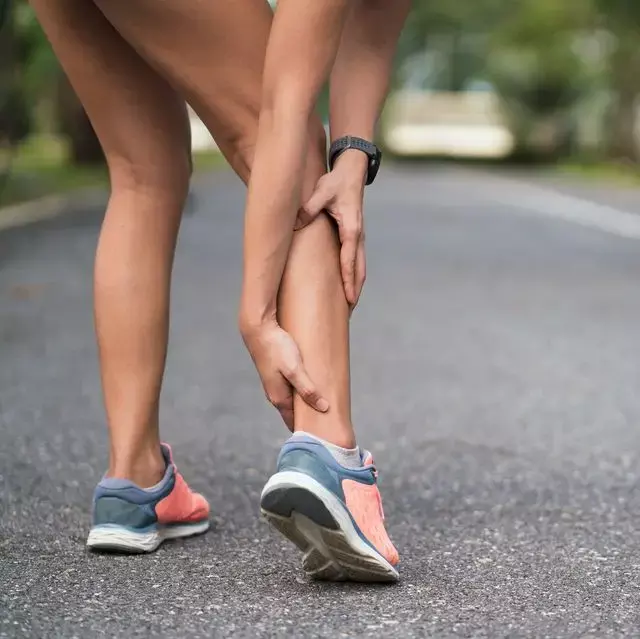- Home
- Medical news & Guidelines
- Anesthesiology
- Cardiology and CTVS
- Critical Care
- Dentistry
- Dermatology
- Diabetes and Endocrinology
- ENT
- Gastroenterology
- Medicine
- Nephrology
- Neurology
- Obstretics-Gynaecology
- Oncology
- Ophthalmology
- Orthopaedics
- Pediatrics-Neonatology
- Psychiatry
- Pulmonology
- Radiology
- Surgery
- Urology
- Laboratory Medicine
- Diet
- Nursing
- Paramedical
- Physiotherapy
- Health news
- Fact Check
- Bone Health Fact Check
- Brain Health Fact Check
- Cancer Related Fact Check
- Child Care Fact Check
- Dental and oral health fact check
- Diabetes and metabolic health fact check
- Diet and Nutrition Fact Check
- Eye and ENT Care Fact Check
- Fitness fact check
- Gut health fact check
- Heart health fact check
- Kidney health fact check
- Medical education fact check
- Men's health fact check
- Respiratory fact check
- Skin and hair care fact check
- Vaccine and Immunization fact check
- Women's health fact check
- AYUSH
- State News
- Andaman and Nicobar Islands
- Andhra Pradesh
- Arunachal Pradesh
- Assam
- Bihar
- Chandigarh
- Chattisgarh
- Dadra and Nagar Haveli
- Daman and Diu
- Delhi
- Goa
- Gujarat
- Haryana
- Himachal Pradesh
- Jammu & Kashmir
- Jharkhand
- Karnataka
- Kerala
- Ladakh
- Lakshadweep
- Madhya Pradesh
- Maharashtra
- Manipur
- Meghalaya
- Mizoram
- Nagaland
- Odisha
- Puducherry
- Punjab
- Rajasthan
- Sikkim
- Tamil Nadu
- Telangana
- Tripura
- Uttar Pradesh
- Uttrakhand
- West Bengal
- Medical Education
- Industry
ALR RSI score may help evaluate psychological readiness to return to sport after acute Achilles tendon tear

The return to sport is one of the main goals following Achilles tendon tear repair. Several psychological factors influence the return to sport after a sports injury. The traditional tools to assess the return to sport do not take into account psychological factors. The ankle ligament reconstruction-return to sport injury (ALR-RSI), validated for ankle instability, is a score to evaluate psychological readiness to return to sport.
E. Shitrit et al conducted a study to validate the ALR-RSI score for the assessment of the readiness to return to sport after Achilles tendon repair. The study been published in “Knee Surgery, Sports Traumatology, Arthroscopy” journal.
The ALR-RSI score, adapted from the anterior cruciate ligament-return to sport injury (ACL-RSI) score used following knee ligament reconstruction, was validated according to the international COSMIN methodology. Patients operated for Achilles tendon repair responded to the questionnaire during the rehabilitation period. The EFAS, FAAM and VISA-A scores were used as reference questionnaires.
Open surgical repair of a recent Achilles tendon tear was performed in all patients of different centres. Patients were immobilised in a boot-with-heel lifts and no weight-bearing for 3 weeks, then, in same position with weight-bearing allowed. Afterwards, they followed an equivalent rehabilitation protocol, including joint range of motion recovery and muscle strengthening.
Key findings of the study were:
• 50 patients were included in the study, 8 women and 42 men.
• The level of sports activity of the patients were:
Five patients (10%) were professional athletes (1 basket, 2 handball, 2 football),
20 patients (40%) practised a sport at the competitive level, and
25 (50%) at the amateur level.
• Eleven of the 50 patients (22%) had returned to sport at 6.8 months of follow-up. Four (36.4%) of these patients returned to sport at the preinjury level of play and 7 patients (63.6%) at a lower level of play.
• No correlation was found between the type, level of sport, and the return to sport.
• The ALR-RSI score was strongly (r>0.5) correlated to the EFAS score: r=0.68 [0.50–0.80] the FAMM sport score: r=0.7 [0.52–0.84] the FAAM AVQ score (r=0.6 [0.35–0.78]), and the VISA A score (r=0.54 [0.26–0.76]).
• The discriminant validity was good with the ALR-RSI, which was significantly lower in the patients that did not return to sport: 60.7 (40–81.4) compared to those that did: 83.2 (64.3–100) p=0.001.
• Reproducibility was excellent with an intra-class correlation coefficient ρ of 0.99 [097–1.00]. The internal consistency was excellent (alpha coefficient=0.95).
The authors concluded – “The results of this series show that the ALR-RSI score is a valuable tool to assess the psychological readiness to return to sport in patients who undergo surgical Achilles tendon suture repair.”
Level of evidence - III.
VISA-A Victorian institute of sport assessment-Achilles
EFAS European Foot and Ankle Society
FAAM Foot ankle ability measurement
Further reading:
The ALR RSI score can be used to evaluate psychological readiness to return to sport after acute Achilles tendon tear
E. Shitrit, E. Valentin et al
Knee Surgery, Sports Traumatology, Arthroscopy (2023) 31:4961–4968
https://doi.org/10.1007/s00167-023-07548-z
MBBS, Dip. Ortho, DNB ortho, MNAMS
Dr Supreeth D R (MBBS, Dip. Ortho, DNB ortho, MNAMS) is a practicing orthopedician with interest in medical research and publishing articles. He completed MBBS from mysore medical college, dip ortho from Trivandrum medical college and sec. DNB from Manipal Hospital, Bengaluru. He has expirence of 7years in the field of orthopedics. He has presented scientific papers & posters in various state, national and international conferences. His interest in writing articles lead the way to join medical dialogues. He can be contacted at editorial@medicaldialogues.in.
Dr Kamal Kant Kohli-MBBS, DTCD- a chest specialist with more than 30 years of practice and a flair for writing clinical articles, Dr Kamal Kant Kohli joined Medical Dialogues as a Chief Editor of Medical News. Besides writing articles, as an editor, he proofreads and verifies all the medical content published on Medical Dialogues including those coming from journals, studies,medical conferences,guidelines etc. Email: drkohli@medicaldialogues.in. Contact no. 011-43720751


